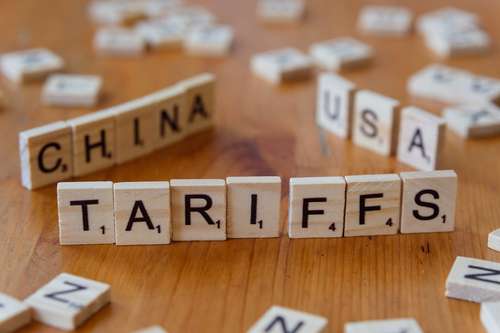China has been labeled a security danger by NATO for the first time, with a warning that its aspirations and coercive behavior "challenge our interests, security, and values."
The new ten-year strategic plan for the 30-member alliance criticizes China for its "malicious" cyber operations, its strategic cooperation with Russia, its attempts to control vital supply networks, and its quickly growing nuclear weapons.
Reaffirming the alliance's commitment to collective defense "against all threats from all directions," it claims that Russia's "brutal and unlawful invasion" of Ukraine has "gravely altered our security environment."
A 2010 document that omitted China and referred to Russia as a "strategic partner" has been replaced by an updated "Strategic Concept" that was approved at the NATO summit in Madrid late on Thursday AEST.
“The People’s Republic of China’s stated ambitions and coercive policies challenge our interests, security and values,” it says.
The PRC uses a wide range of political, economic, and military instruments to expand its influence around the world and project power, but it is secretive about its goals, plans, and military buildup.
"The PRC targets partners and undermines alliance security through its nefarious hybrid and cyber activities, aggressive rhetoric, and disinformation."
China reacted swiftly, saying NATO should “stop trying to mess up Asia and the world after messing up Europe”.
"They ought to give up on their efforts to start a fresh Cold War. They ought to quit playing zero-sum games and adopting a Cold War mindset, according to Zhao Lijian, a spokeswoman for the Chinese Foreign Ministry.
Anthony Albanese, however, urged China to learn from the Ukraine conflict and keep its distance from Russia.
The Prime Minister added on the sidelines of the conference, "China must look at what is occurring, look at the outcome that is there throughout the world, and should be criticizing Russia's conduct.
In a previous speech to NATO leaders, Mr. Albanese said that Beijing and Moscow shared a "lack of democratic ideals" and warned that the two countries' growing proximity presented a threat to all democracies.
"The Chinese government is seeking friends, whether it be through economic support to build up alliances to undermine what has historically been the Western alliance in places like the Indo-Pacific," he said on Wednesday at a NATO meeting. "Just as Russia seeks to recreate a Russian or Soviet empire.
Mr. Albanese claimed that China had "economically coerced" Australia, and he urged democratic leaders to diversify their trade networks to prevent a similar outcome.
The "Asia Pacific Four," which consists of Mr. Albanese, his counterparts from Japan, South Korea, and New Zealand, met before the conference began and declared that they were "not far from the issues" being faced in Europe.
Before the conference, he remarked, "Just as the actions in the Indo-Pacific influence European states, the events in Europe have genuine and substantial ramifications for our own region of the Indo-Pacific."
"Partners can only give a true option... in the region and take concrete steps to promote peace, security, and prosperity for the Indo Pacific by working together," states the statement.
The invasion of Ukraine, according to Japanese Prime Minister Fumio Kishida, has disturbed the foundations of the world order.
Mr. Kishida stated that "the security of Europe and the security of the Indo-Pacific cannot be dissociated."
Authoritarian regimes "attack our interests, values and democratic way of life," interfering with democratic processes and putting nations' resiliency to the test, says NATO's new Strategic Concept.
It criticizes China and Russia for spending heavily on highly advanced conventional and nuclear missile systems "with little openness or consideration for international norms and commitments."
The statement also singles out China for its initiatives to control crucial infrastructure, strategic minerals, and essential technologies.




